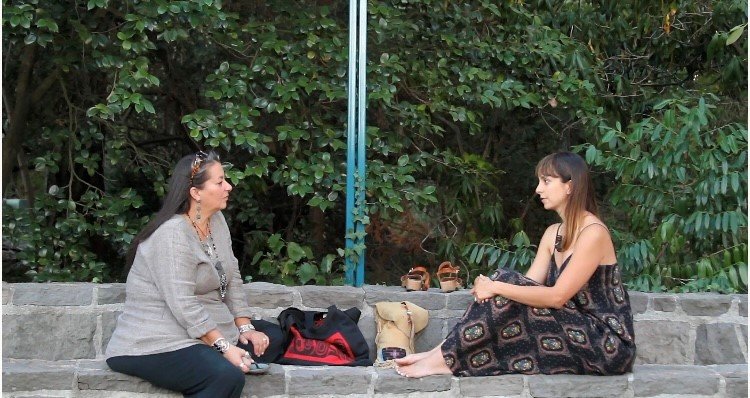Content warning for colonial violence
Daughter of a Lost Bird, directed by Brooke Pepion Swaney, debuted in 2021 and premiered as part of a film series called ‘Body and Land,’ presented by Cinema Politica, a non-profit media arts organization with a mission of supporting the work of independent, politically-minded filmmakers. The term “lost bird” refers to people who have been adopted from Native reservations and grow up not realizing they are Native American. Daughter of a Lost Bird focuses on Kendra Potter, a Lummi woman adopted into a white family as a baby. The audience follows her journey as she meets her birth mother, April Newcomb, and is introduced to the Lummi Nation of Bellingham, Washington, for the first time. Moviegoers also learn about Newcomb, who was herself an adoptee, and her story about overcoming addiction and reconnecting to the Lummi Nation in her own way.
The film opens with a phone call. A familiar Apple ringtone echoes loudly in an empty room while a young woman sits cross-legged on a rug with the phone pressed to her ear. Her anxious expression makes the audience sit forward slightly, on edge. The call clicks to voice message, and the woman says in a halting voice, “Hello April. This is your birth daughter, Kendra”. She adds she will be awake for another hour if April wishes to call her back. April hangs up and laughs with the people off-screen about the awkwardness of the voice message. The scene jumps to later that night, when Kendra’s phone is ringing—April is calling her back. Most parents with children in the adoption system do not want to or have the opportunity to reconnect with their children, making Kendra’s story a rare one.
Daughter of a Lost Bird depicts the intensely emotional process through which many Indigenous families, torn apart by colonial policies of cultural assimilation and generations of trauma, reconnect and learn about each other for the first time. Kendra’s story delves into the intimate control governments had over Indigenous life and community-building, exemplifying the 19th and 20th century settler-colonial and gendered phrase: “Kill the Indian, save the man.” Although she was never taught about her culture growing up, she was raised as part of a loving, upper-middle-class white family and felt no grief over the absence of Native American culture or family in her life until her discovery.
Telling a simple yet complex story, the film tackles the emotionally fraught and lasting results of colonial control and reach over Indigenous peoples in North America. With an emphasis on care, healing, and acceptance, Daughter of a Lost Bird portrays the values the Lummi Nation, among other Indigenous peoples in the Americas, place on the importance of family. Viewers watch throughout the film as Kendra goes from feeling overwhelmed and slightly out of place in her newfound community to passionately embracing her culture and lost community. The significance of the Lummi Nation’s welcome cannot be overstated. On Kendra’s first visit to the Nation, she is hugged by people she has never met, who warmly tell her: “Welcome back home.”
Kendra’s story of reconnection with her birth mother and community is an essential watch. White families adopting Indigenous children is common, Brooke Pepion Swaney, the film’s director and a member of the Blackfoot Nation, explained during a Q&A after the film. Swaney felt that most Native birth parents who have given up their children for adoption do not want to meet them. This in turn creates a cycle of Indigenous trauma from children entering the broken foster care system, which can extend for generations. By giving a voice to these stories of reconnection, the film works to facilitate the redress of intimate forms of justice and reconciliation for Indigenous peoples.
Daughter of a Lost Bird played at Cinema Politica on Oct. 24 as part of their Body and Land series. Movies from this series will be playing every week until Dec. 5. A suggested donation of $5-10 is encouraged.









